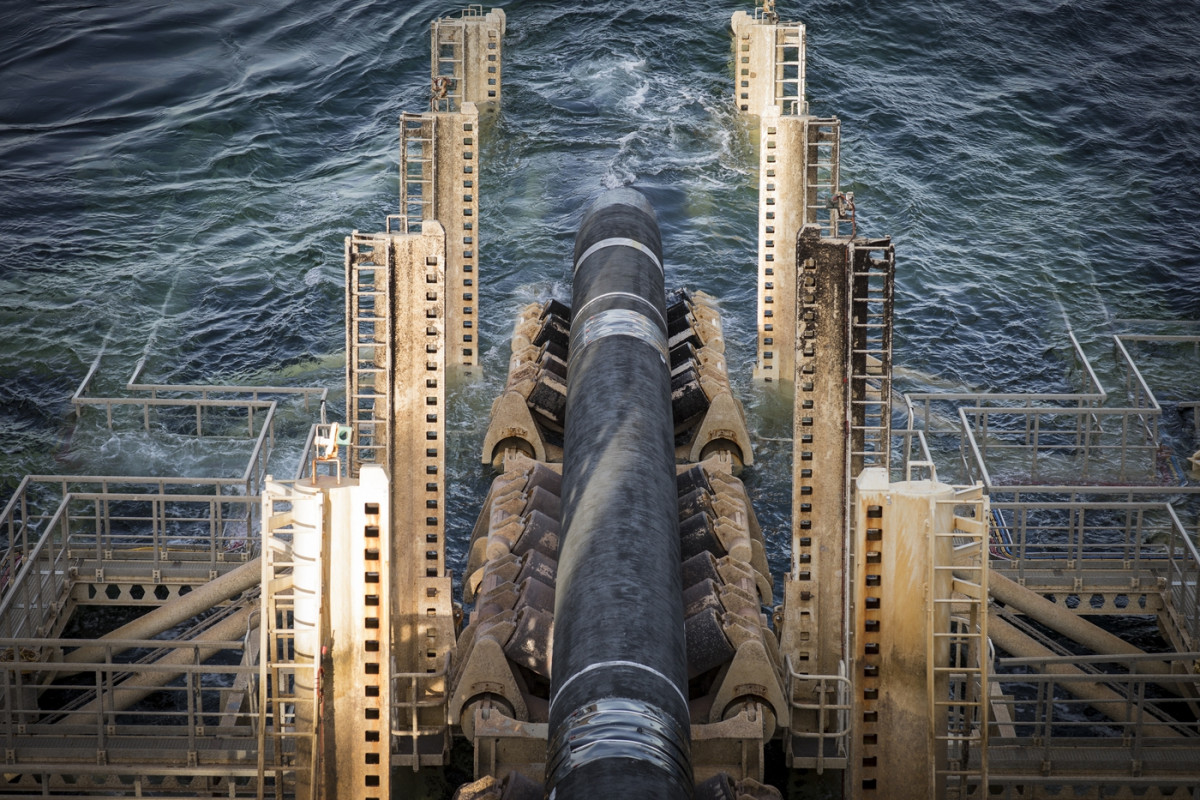Former German govt strongly lobbied for “private sector project” Nord Stream 2 – media
The former German government under chancellor Angela Merkel heavily lobbied for the completion of the controversial Nord Stream 2 pipeline to facilitate natural gas imports from Russia despite publicly emphasising that it saw it as a "private sector project", and despite internal doubts over Russia’s reliability, Süddeutsche Zeitung and Table.Media reported.
Internal government documents showed that two consecutive governments under Merkel had tried to push through the project after Russia’s annexation of Crimea despite repeated criticism by many European partners and the U.S.; Germany only backed away from the project, which was launched in 2015, in earnest when Green Party economy minister Robert Habeck took office in late 2021.
In the years between the annexation of Crimea and Russia’s full invasion of Ukraine, the German government under Merkel officially called the pipeline a purely “private sector project” - but vowed to grant it a license on the condition that Russia guaranteed continued gas supplies through existing onshore pipelines to Ukraine. However, the reviewed documents had shown that the German economy ministry at the time could not be sure that Moscow would abide by the agreed terms. In an internal document by the economy ministry for a briefing of former economy minister Brigitte Zypries (SPD) with the head of the pipeline consortium’s administrative board, former German chancellor Gerhard Schröder (SPD), the ministry concluded that Gazprom “cannot be forced” to send gas through Ukraine, Table.Media reported.
Schröder went on to become a lobbyist for Russian energy companies after his term and campaigned intensively in favour of expanding the offshore gas transport infrastructure during and after his time in office. Moreover, Gazprom had informed the government that using the Ukraine pipeline would lead to significantly higher costs, an argument that the government did not make public.
New government puts stop to Nord Stream 2
Shortly after starting his new job, economy minister Habeck received an internal assessment report compiled under his predecessor, Peter Altmaier from the conservative Christian Democrats (CDU), said Süddeutsche Zeitung. The report - which had been greenlit by Merkel (CDU) as well as by Germany’s finance minister at the time, Olaf Scholz, the current chancellor for the Social Democrats (SPD) - was supposed to be used by the country’s Federal Network Agency (BNetzA) for licensing the new pipeline under the Baltic Sea. In it, Altmaier’s economy ministry said there was not enough evidence for a concrete threat to gas supply security linked to the pipeline, meaning the license could be issued, the Süddeutsche Zeitung said in a separate article. This was despite geopolitical tensions with Russia already mounting at the time and governments in Ukraine, Poland, Lithuania and other states warning against the project.
After gaining access to the report, Habeck reportedly spoke of a “political bomb” that would be “absolutely concerning” for Germany’s supply security. The Green Party minister subsequently ordered that the report be reviewed and to assess how the new government could still halt the licensing of the project, which would cost nearly ten billion euros. Two days before Russia launched its attack, the government officially put all further proceedings on hold.
At a Green Party convention over the weekend, Habeck criticised the CDU’s role in creating the conditions for Germany’s energy crisis in 2022: “Everything is based on a historic mistake by the former coalition” of the CDU and the SPD, Habeck in a report by newspaper Die Welt. He added that the CDU would not make any efforts to critically assess its own errors and instead tried to put the blame for the country’s energy woes on the new government, which inherited the Nord Stream 2 challenge.
Russia had initially reduced its gas transfers to western Europe ahead of its invasion attempt on 24 February 2022, leading to lower storage levels - especially in Germany. In the months after Vladimir Putin started Russia’s full-scale war on Ukraine, gas deliveries through the existing Nord Stream 1 pipeline were severely throttled. Russia cited alleged technical problems as the reason, a claim that was widely doubted by technical experts as well as by the German chancellor at the time. In September 2022, unknown attackers then destroyed three of the four existing Nord Stream pipes with explosions that led to massive damage on local marine ecosystems and released huge amounts of greenhouse gases into the atmosphere.


